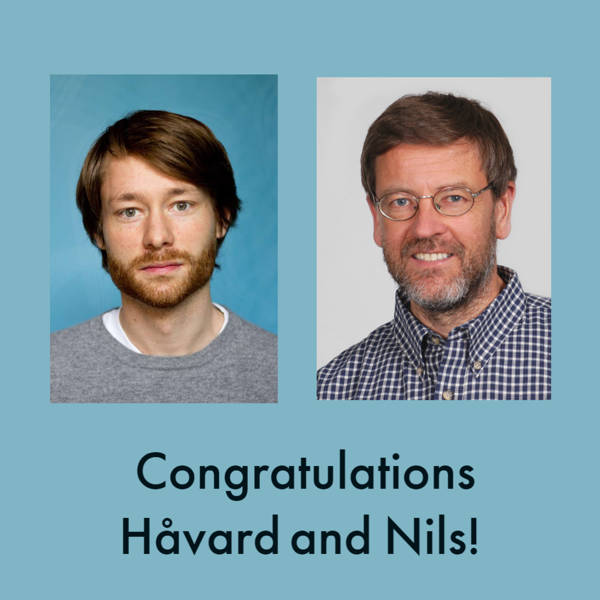
A team of peace researchers and mathematicians from UiO, PRIO, and other institutions, will investigate “The Long Peace”.
The American-Canadian psychologist Steven Pinker started a debate when his book The Better Angels of Our Nature came out in 2011. There, he characterized the time since 1945-1950 as "The Long Peace". He argued that the world had become more peaceful since WWII.
But PRIO's Håvard Mokleiv Nygård and UiO statistician Nils Lid Hjort weren't completely convinced. They gathered a multidisciplinary team to investigate, and the results of their data analysis showed the Long Peace really began after the Vietnam War.
Now Håvard and Nils have received funding for a one-year project at the Centre for Advanced Study (CAS). They join a prestigious gathering of researchers: each year CAS picks three groups to work with projects within the humanities/theology, social sciences/law, and science/medicine/mathematics. Each group can spend an entire academic year at the CAS offices immersing themselves in their study. "Stability and Change" will spend autumn 2022 and spring 2023 at CAS.
Mokleiv Hjort 2[4373].jpg
![Mokleiv Hjort 2\[4373\].jpg](https://cdn.prio.org/cdn_image/Mokleiv%20Hjort%202%5b4373%5d.jpg?x=720&y=480&m=Scale)
Photo: Bjarne Røsjø/UiO
"By combining peace and conflict research with statistics we can dig deeper into the quantitative sides of armed conflict. We'll also develop relevant statistical methods for testing stability, point out possible turning points, and better understand the underlying mechanisms of these conflicts," says Håvard.
Their team will include researchers from PRIO and UiO's Department of Mathematics, as well as Steven Pinker (he gave the 2019 PRIO Annual Peace Address), Aaron Clauset from the University of Colorado, and Bear Braumoeller from Ohio State University (who gave a presentation last year at PRIO, which you can listen to here). Clauset and Braumoeller are both vocal Pinker critics.
"If we achieve what we're hoping to, we'll be able to give a better, more robust answer to the question of why the world has become more peaceful," says Håvard.





